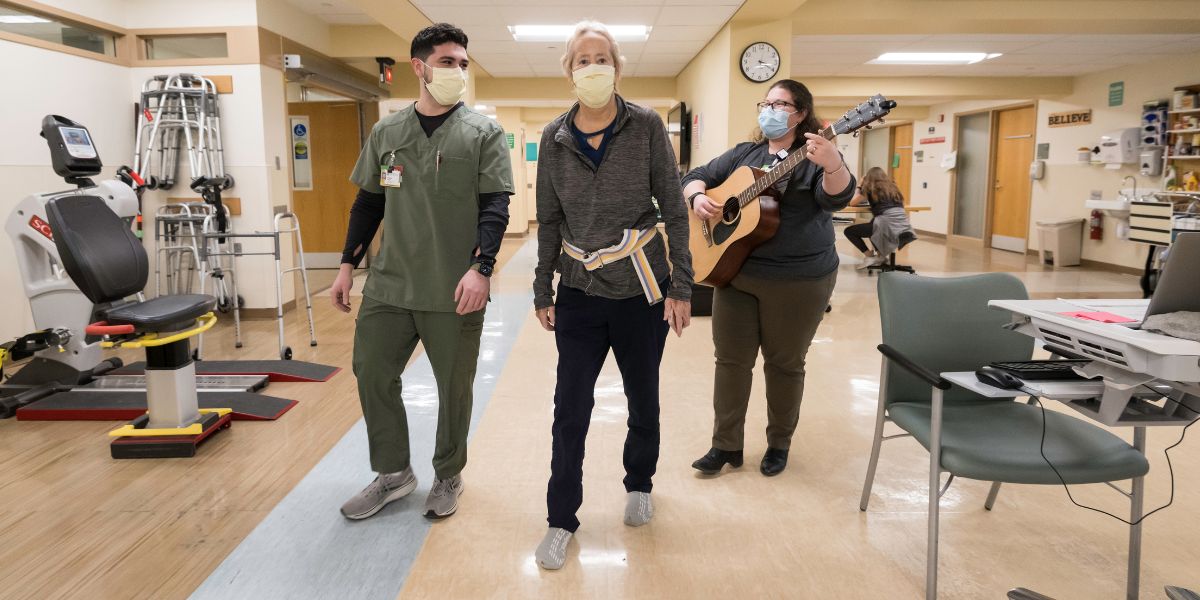Today, Tuesday, April 15, 2025, marks the end to another World Music Therapy Week (April 10–15). World Music Therapy Week—an annual observance since 2023 and an extension of World Music Therapy Day, formerly March 1— is a time to celebrate the transformative power of music therapy, raise awareness about its benefits, and advocate for music therapy as a valuable tool for improving mental health and well-being.
These principles are recognized and celebrated at Eastman and form the basis for Eastman’s ongoing partnership with the University of Rochester Medical Center: Eastman Performing Arts Medicine Center (EPAM).
Keep reading to learn more about music therapy here in Rochester from Syara Robert, a Student Program Assistant at Eastman’s Institute for Music Leadership.
Music therapy is making a powerful impact across UR Medicine, where board-certified music therapists are helping patients navigate the physical, emotional, cognitive, and social challenges of illness and recovery. At the University of Rochester Medical Center (including Golisano Children’s Hospital and Strong Memorial Hospital), Strong Recovery, the Pluta Cancer Center, and the Eastman Performing Arts Medicine Center, we are leading the charge, using music to support whole-person care in collaboration with interdisciplinary teams.
What Is Music Therapy?
Music therapy is the clinical use of music to achieve non-musical goals. At UR Medicine, music therapists offer individualized and family-centered care through both active and receptive music-based interventions. These include one-on-one sessions, group sessions, and support during outpatient visits.
By the Numbers
In 2024, the music therapy team served over 2,000 patients at no cost, providing:
- 2,303 patient consults
- 2,860 individual sessions
- 64 group sessions with over 240 patients participating
Why It Matters
Therapeutic goals are personalized and may include:
- Supporting coping and emotional expression
- Managing pain, stress, and anxiety
- Promoting relaxation and mindfulness
- Enhancing communication and social connection
- Complementing physical, speech, and occupational therapies
Training Future Professionals
Since 2002, URMC’s Music Therapy Program has trained 89 bachelor’s and master’s level music therapy students through practicum and internship placements, cultivating the next generation of therapists.
The Broader Impact
The American Music Therapy Association and numerous studies continue to validate music therapy’s effectiveness for conditions ranging from chronic pain and anxiety to neurodegenerative diseases. Music therapy is gaining traction in hospitals nationwide—with UR Medicine proudly among the leaders advancing this essential field.
